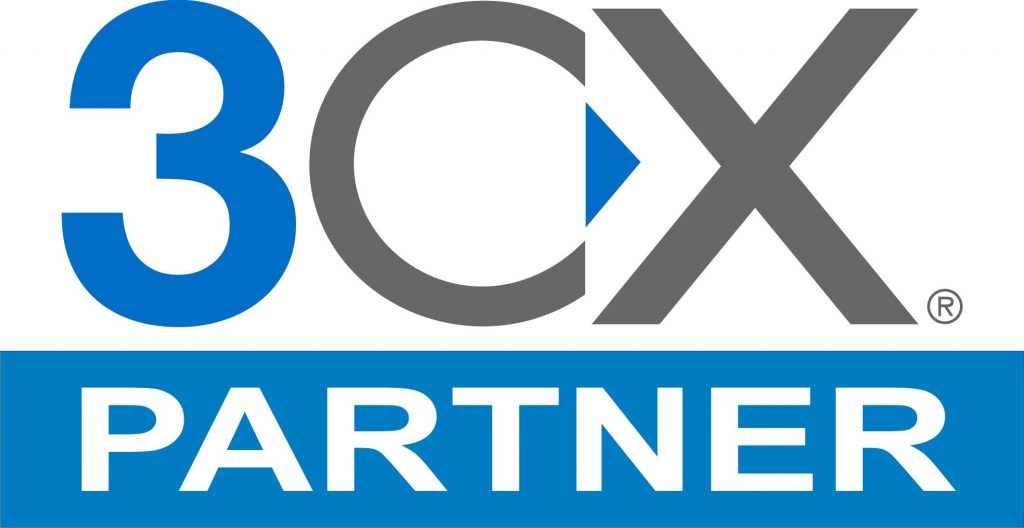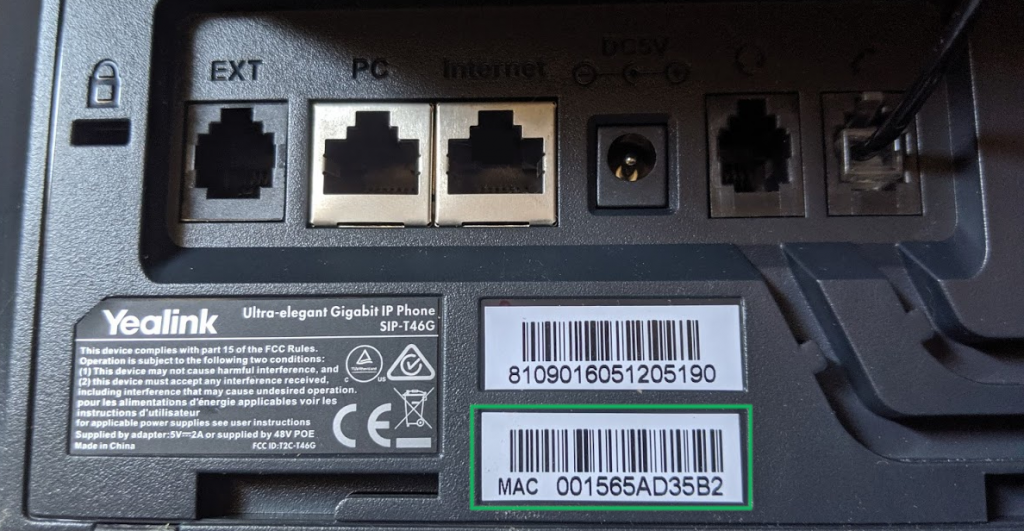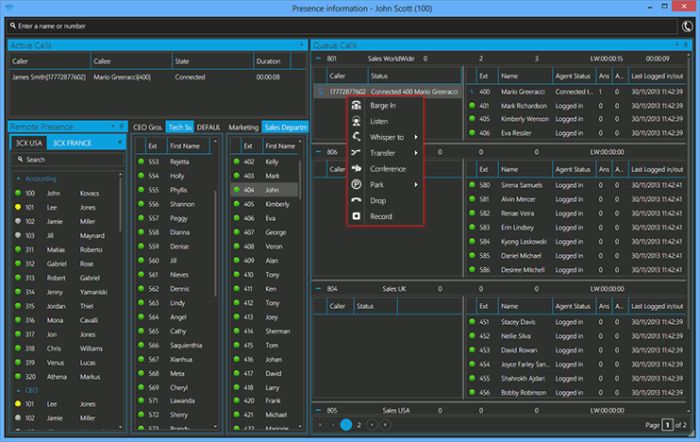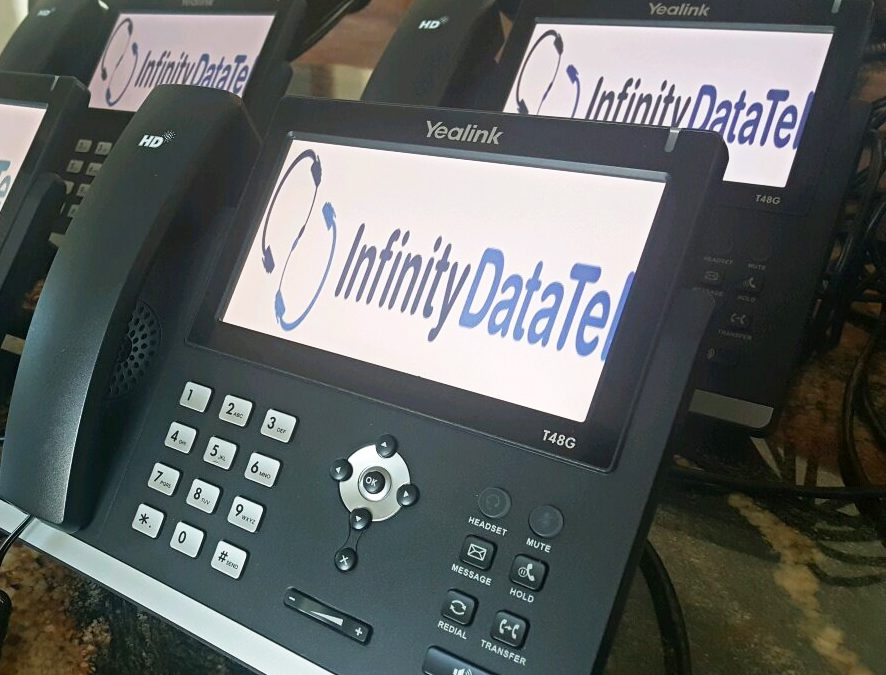What’s more challenging than setting up a business network? Setting up that phone system alone can be a pain in the neck. Phone systems have been a never-ending problem for network administrators and businesses. Thankfully, we no longer need to deal with complex PBX systems due to technological advances. Today, we can use the power of VoIP phone systems.
VoIP phone systems have been around for more than 15 years. Like most technologies, it had a few wrinkles to smooth out in the early years. Consumers took full advantage of VoIP systems through companies like Vonage, but only businesses that preferred cutting-edge technology switched to VoIP systems early on. VoIP technologies have become so good that they are the de facto standard for phone system deployments.

In the early days, Many VoIP phone systems were not HIPAA compliant. That’s not the case nowadays.
But why is that? What makes a VoIP system so good that businesses would rip their old phone system out and implement an entirely new thing? Let’s find out.
Table of Contents
VoIP Phone Systems Streamlined Costs
Due to how VoIP works, it is much cheaper to operate than a traditional phone system. The hardware required to make a VoIP system work is affordable. It tends to be a single router that handles voice calls. That router is then plugged into the existing network within a business.

Who doesn’t like to save money? With a VoIP phone system, you’ll be able to save buckets of cash to reinvest in your business!
VoIP phone systems don’t require new cabling to be run or re-configuring an existing PBX system. Likewise, they don’t need a lot of documentation.
Because of this, both the implementation and operating costs of a VoIP phone system are far cheaper than other phone solutions. Typically, most businesses can save as much as 70% on their phone solutions using a VoIP option. The exact savings depend on each business’s current implementation or network solution.
Unlike traditional phone systems, VoIP systems tend to retain fixed costs. Because call information is routed through the internet, many VoIP providers can offer static prices for long-distance and global calls. In a day where many businesses operate worldwide, this could be a godsend for financial departments.
This isn’t to say that there may not be hidden costs associated with using a VoIP solution. Phone call clarity wholly depends on how robust the network is. While this may sound frightening, this is a very manageable problem. Businesses only need to ensure that good quality of service rules are in place and that there is a significant enough pipeline (IE., Internet connection) going out of the company. Most businesses should already have a beefy enough internet connection to handle VoIP calls, and quality of service rules are accessible for any network administrator to implement.
Better Call Clarity

With HD-quality phones, you’ll think you’re in the same room as the person you’re talking to.
It was mentioned that call clarity for a VoIP system depends much on the quality of a network. That’s not to say that VoIP solutions can’t offer fantastic call quality. A VoIP system can provide call clarity at parity with a traditional phone system, even with poor connections. In an optimized environment, the call clarity of a VoIP system can’t be beaten. Phone calls can sound so good that it seems like the person is speaking right next to you in person.
Quicker and Cheaper VoIP Phone Systems Implementation

With 3CX software, HD call quality, and the ability to talk to customers anywhere in the world, your VoIP phone system is limitless.
VoIP systems are straightforward to configure and move. Moving an employee from one office to another could be a significant headache with traditional phone systems. VoIP systems are far more manageable, though. Employees only need to move their phones like their computers, and the rest of their desk stuff. Employees don’t have to worry about downtime or losing their business phone number.
That’s because of the way VoIP works. VoIP systems are completely network-based systems. Once a phone is configured to work on the VoIP system, it’ll work anywhere within the network. It’s genuinely a plug-and-play setup.
You might think there might be a catch here, but there isn’t. VoIP phones are straightforward to configure. Most systems include a management dashboard where phones can be added or removed on the fly. These typically require very little information, such as the phone’s MAC address. Once the phone is configured within the management dashboard, it will do the rest of the work.

You can find the MAC address on the underside of your Yealink handset.
If an employee leaves and that phone needs to be transferred to a new employee, that’s not an issue. Updating a phone’s information is as easy as editing the data in that management dashboard. Within minutes the phone number assigned to that phone could be updated for the new employee’s name, and their voicemail box could be reset.
As technology advances, many solutions exist to establish the best communication system other than Landline Phone Services. Still, many businesses are in the dilemma of switching between a landline and a VoIP phone system.
Striking a balance between low-price services and the most compatible for your team is very tricky. Infinity DataTel’s Business Phone System does more than make and receive calls. Our system integrates diverse workforce points like messaging, conferencing, and much more. When choosing the right phone system or Business VoIP Service Provider for your business, there will be many factors to consider.
Smart business owners are choosing phone systems that unify their entire communication system. Sure, they want to make and receive calls, but they also want features like CRM integration and video chat.
Choosing a VoIP provider and system that fits your needs is no simple task. Here are some key factors to consider when choosing the right phone system for your business:
Phone Connection
The foremost step in choosing the best phone system starts with deciding to go with a traditional landline or a VoIP connection. The landline systems generally work with a telephone company’s copper wiring, and the VoIP system depends on the internet. An increasing number of organizations are switching to a VoIP Phone System because it has more features, is modern, and is cheaper to maintain and install. You can be connected anywhere in the world.
Virtual Systems

This VoIP phone system has 3CX WebMeeting installed that lets you video-conference anywhere you have an internet connection.
Businesses generally consider virtual systems without an office or ones that have many remote employees. The virtual system contains call forwarding solutions that can transfer the calls from the main business number to an employee’s mobile or home place. It includes many valuable tools and automated attendants like call screening, online faxing, and voicemail. The 3CX mobile app, which is included, is brilliant. It downloads to your smartphone, and you can make and receive calls anywhere you have an internet connection. I once received a call on the subway in Taipei, and the reception was clear and crisp.
Costs and Features
Monthly costs are based on your business’s number of users and extensions, not per minute. Gone are the days of the surprise $1000+ phone bill. With Infinity DataTel, your rate is fixed unless your number of extensions changes.
Regarding features, our phone systems provide a wide array of calling options for your small to large business. We offer dozens of features, including auto-attendants, voice mail, voice-to-email, instant messaging, video conferencing, HD calling, the 3CX phone app, and many more.
Scalability

This call center uses 3CX software to route all their calls in an easy-to-use interface. Adding or subtracting extensions with a 3CX VoIP phone system is easy.
Whether your business is growing or downsizing, our 3CX phone systems are entirely scalable. We can add and subtract phones and extensions without any interruptions. Having this type of flexibility at your disposal is just one fantastic benefit we offer.
This makes VoIP phone systems far more straightforward to implement and manage for the end user.
To upgrade your phone system or learn how a 3CX-powered VoIP phone system can benefit your business, send us a message or call 480-493-5999.

